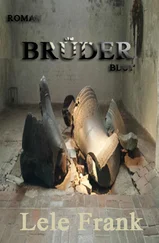Frank Tallis - Vienna Blood
Здесь есть возможность читать онлайн «Frank Tallis - Vienna Blood» весь текст электронной книги совершенно бесплатно (целиком полную версию без сокращений). В некоторых случаях можно слушать аудио, скачать через торрент в формате fb2 и присутствует краткое содержание. Жанр: Исторический детектив, на английском языке. Описание произведения, (предисловие) а так же отзывы посетителей доступны на портале библиотеки ЛибКат.
- Название:Vienna Blood
- Автор:
- Жанр:
- Год:неизвестен
- ISBN:нет данных
- Рейтинг книги:3 / 5. Голосов: 1
-
Избранное:Добавить в избранное
- Отзывы:
-
Ваша оценка:
- 60
- 1
- 2
- 3
- 4
- 5
Vienna Blood: краткое содержание, описание и аннотация
Предлагаем к чтению аннотацию, описание, краткое содержание или предисловие (зависит от того, что написал сам автор книги «Vienna Blood»). Если вы не нашли необходимую информацию о книге — напишите в комментариях, мы постараемся отыскать её.
Vienna Blood — читать онлайн бесплатно полную книгу (весь текст) целиком
Ниже представлен текст книги, разбитый по страницам. Система сохранения места последней прочитанной страницы, позволяет с удобством читать онлайн бесплатно книгу «Vienna Blood», без необходимости каждый раз заново искать на чём Вы остановились. Поставьте закладку, и сможете в любой момент перейти на страницу, на которой закончили чтение.
Интервал:
Закладка:
“He's here…”
“… genius…”
“… greatness…”
“… reputation…”
The plump man took a seat that had been reserved for him on the other arm of the horseshoe and gestured a greeting toward the professor, who replied with a brief downward jerk of the head, like a bird pecking.
Suddenly the door opened again, and a voice called out, “All rise for the first steward of the Order Primal Fire.”
The assembly stood up. Gustav von Triebenbach, wearing a ceremonial red cloak with ermine trim, entered the chamber. He was carrying an ornate staff, which he used to propel himself like a gondolier punting his boat. Von Triebenbach was followed by a liveried servant, whose right arm was linked through the left arm of an extraordinary companion-a man in his fifties, with a long unruly gray beard and an enormous, incongruously dark bushy mustache. He was wearing a rather shapeless velveteen flat cap, which would not have appeared out of place on the head of a Renaissance courtier. However, the most striking feature of his appearance were the lint bandages that had been wound around the top half of his head. Nothing of his face could be seen above the tip of his nose.
As the three men walked to the front of the chamber, the congregation began to clap, and soon the enclosed vaulted space was reverberating with the noise of an enthusiastic reception.
The liveried servant helped the bandaged man onto the wooden throne, but his progress was faltering: the sudden movement of his hands-plunged desperately into empty space-suggested a moment of anxious uncertainty. Eventually, however, he was able to lower himself between the volute chair arms, and the liveried servant bowed and withdrew.
Von Triebenbach stood at the head of the chamber and lifted his right arm.
“Heil und Sieg!”
The company returned the gesture and repeated the battle cry.
As the applause petered out, the men sat down, and silence soon prevailed. Von Triebenbach bowed and proclaimed, “O primal light, grant us thy consolation, consecrate our hearth, and purify our blood. Deliver us from the hindrances and snares of our enemies and clothe us with the armor of salvation.”
The assembly responded with a softly spoken “Heil und Sieg.”
Von Triebenbach raised his head.
“Brethren… tonight, we are most fortunate.” The blazing torches made the repeated motif of griffins on Von Triebenbach's red cloak glimmer. “Among the societies who have sworn to preserve and protect our glorious heritage-our language, our art, our values-the name of Guido Karl Anton List has become familiar and much respected. He is to be counted among the great thinkers of our age. However, for the benefit of our most recent members, it is incumbent upon me to say a few words of introduction… Most of you, I am sure, will have read our distinguished guest's masterpiece, Carnuntum-a novel of great power and elegance. It has been some fourteen years since the publication of this great work, which has played no small part in inspiring its many readers to rediscover, and take pride in, the legacy of our ancestors. It was Carnuntum that also brought its author to the attention of many politicians, who have since shown an enlightened interest in promoting traditional values… Our distinguished guest has been responsible for the formation of two literary societies, the Free German Society for Literature and the Danubian Literary Society, both of which have provided a safe haven for many writers who would otherwise have found no platform for their work in a city obsessed with degenerate fashionable trivia… Some of you here will remember with great affection, as I do, a wonderful performance-sponsored by the German League-of our distinguished guest's dramatic poem The Wala's Awakening, which was attended by an audience of over three thousand.” There was a low murmur of agreement. “Although our distinguished guest is recovering from a surgical operation-the outcome of which is still, sadly, very uncertain-he has generously agreed to address us this evening, for which we are truly grateful.” Turning to the man on the throne, Von Triebenbach proclaimed, “I, Gustav von Triebenbach, first steward of the Order Primal Fire, welcome you, our most honored guest, scholar, and skald.”
The man nodded, and Von Triebenbach took a seat (next to Professor Foch) at the very end of the pew nearest the throne.
“First steward of the Order Primal Fire, friends, and brothers, I thank you,” said the bandaged man, his voice sounding a little dry and hoarse. He raised his palm.
“Heil und Sieg.”
“Heil und Sieg,” came the response.
“My dear friends,” said List, opening his arms as if in supplication. “You look upon a man diminished. I am blind-and may never see again. But do not be deceived. To be sightless is not to be without vision. And although my body may be weak, in truth I have never felt so strong, so powerful, and so much in command of my faculties. I have never been more certain of the fundamental truths that must guide our thinking…”
List's head moved from left to right, as if he were surveying the scene and taking in-one by one-the attentive expressions of his audience.
“There is a theme which many of our great stories share.” His voice became a little louder. “The promise of redemption, through suffering. I have been cast into darkness. But I have also been redeemed. I have been granted such revelations…”
Olbricht and Aschenbrandt leaned forward; the pew creaked.
“When I was still a boy,” List continued, “in my fourteenth year of life, I experienced a presentiment of my destiny. My father permitted me to join him and a party of friends on a visit to the catacombs under St. Stephen's. We climbed down, and everything I saw excited me with a strange galvanic energy… When we descended to the fourth level, we discovered a ruined altar. I was overwhelmed by an emotion that, even now, I can barely find the words to describe. I proclaimed, ‘When I am a man, I will build a temple of Wotan.’ Of course, I was laughed at… and in truth, I knew nothing more of Wotan than I had read in Vollmer's Worterbuch der Mythologie. But the atmosphere of the catacombs had aroused in me a religious sentiment, and my instinct was to turn not to Christ but to the gods of our fathers. The old gods…”
The speaker paused. Once more, his head movements gave the eerie impression that he could see through the bandages and was inspecting his audience. Olbricht and Aschenbrandt both leaned back, as though repelled by some strange power, when they came into the purview of his hidden, sightless eyes.
“I am indebted to the first steward,” List began again, “for his kind and generous words concerning my novel Carnuntum. I am often asked, ‘From where did such a work come?’ In some respects, I feel it fraudulent to claim authorship, because I was nothing but a vessel through which Carnuntum came into the world. The work grew, however, from a seed, and I can attest to when that seed was planted…” A faint smile hovered around his lips. “When I was a young man, about twenty-seven or so, I traveled-some twenty-five miles east of Vienna-with a small group of companions, to celebrate the summer solstice at the ruined Roman city of Carnuntum. It is a place of great significance for the German people. For it was at Carnuntum that the Quadi, a Germanic tribe, brave and morally pure, conquered the decadent Roman garrison and, in the fullness of time, pressed on to establish a new Teutonic empire. The Quadi were not barbarians but a noble race, reclaiming lost territories.
“Our so-called scholars have paid scant attention to the script of our German ancestors-the runes. They have based all their works on a false and baseless assumption that the Germanic peoples had no script of any kind, and that their writing signs had been imperfectly copied from the Latin script. But they are woefully wrong!”
Читать дальшеИнтервал:
Закладка:
Похожие книги на «Vienna Blood»
Представляем Вашему вниманию похожие книги на «Vienna Blood» списком для выбора. Мы отобрали схожую по названию и смыслу литературу в надежде предоставить читателям больше вариантов отыскать новые, интересные, ещё непрочитанные произведения.
Обсуждение, отзывы о книге «Vienna Blood» и просто собственные мнения читателей. Оставьте ваши комментарии, напишите, что Вы думаете о произведении, его смысле или главных героях. Укажите что конкретно понравилось, а что нет, и почему Вы так считаете.












